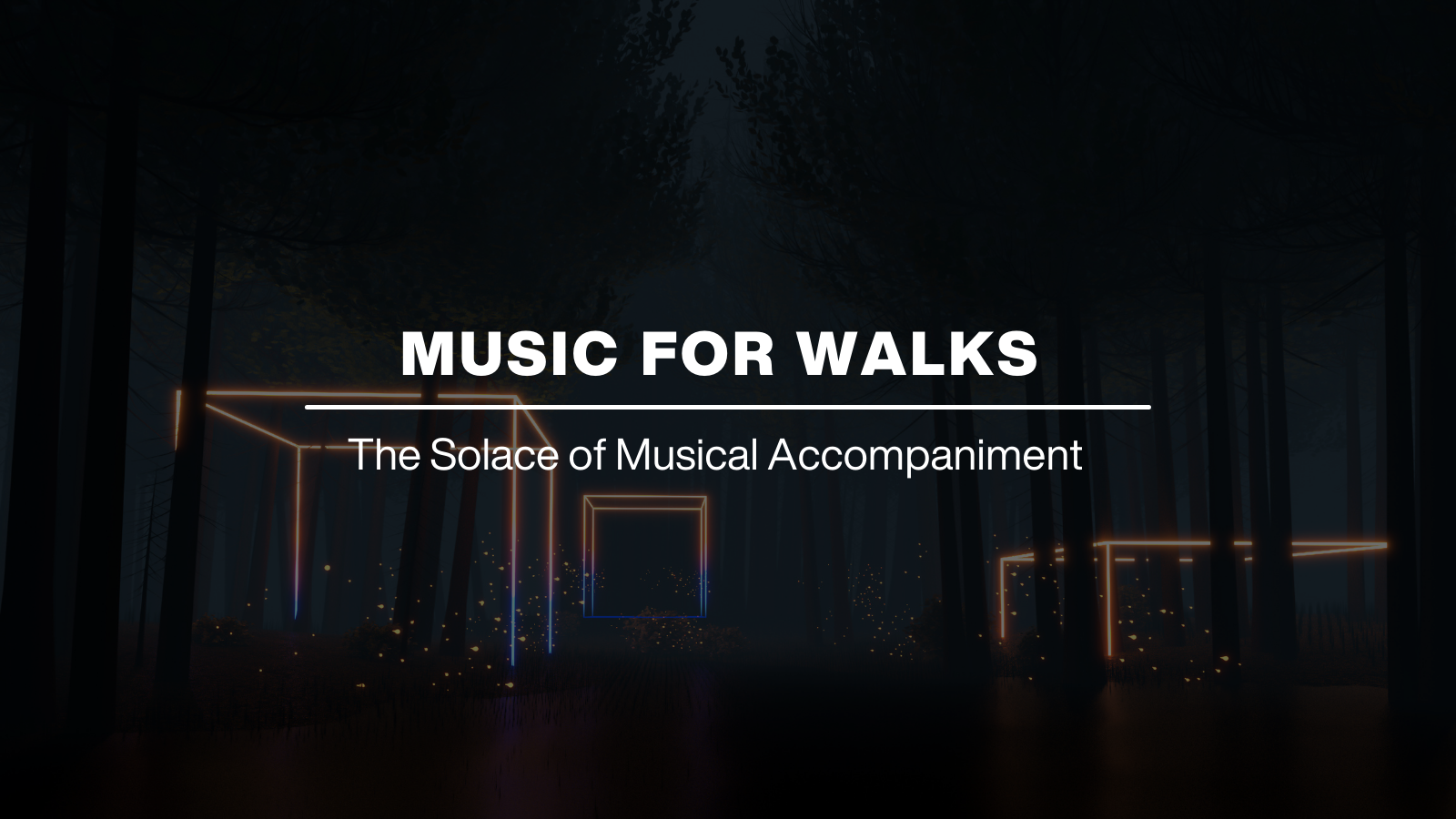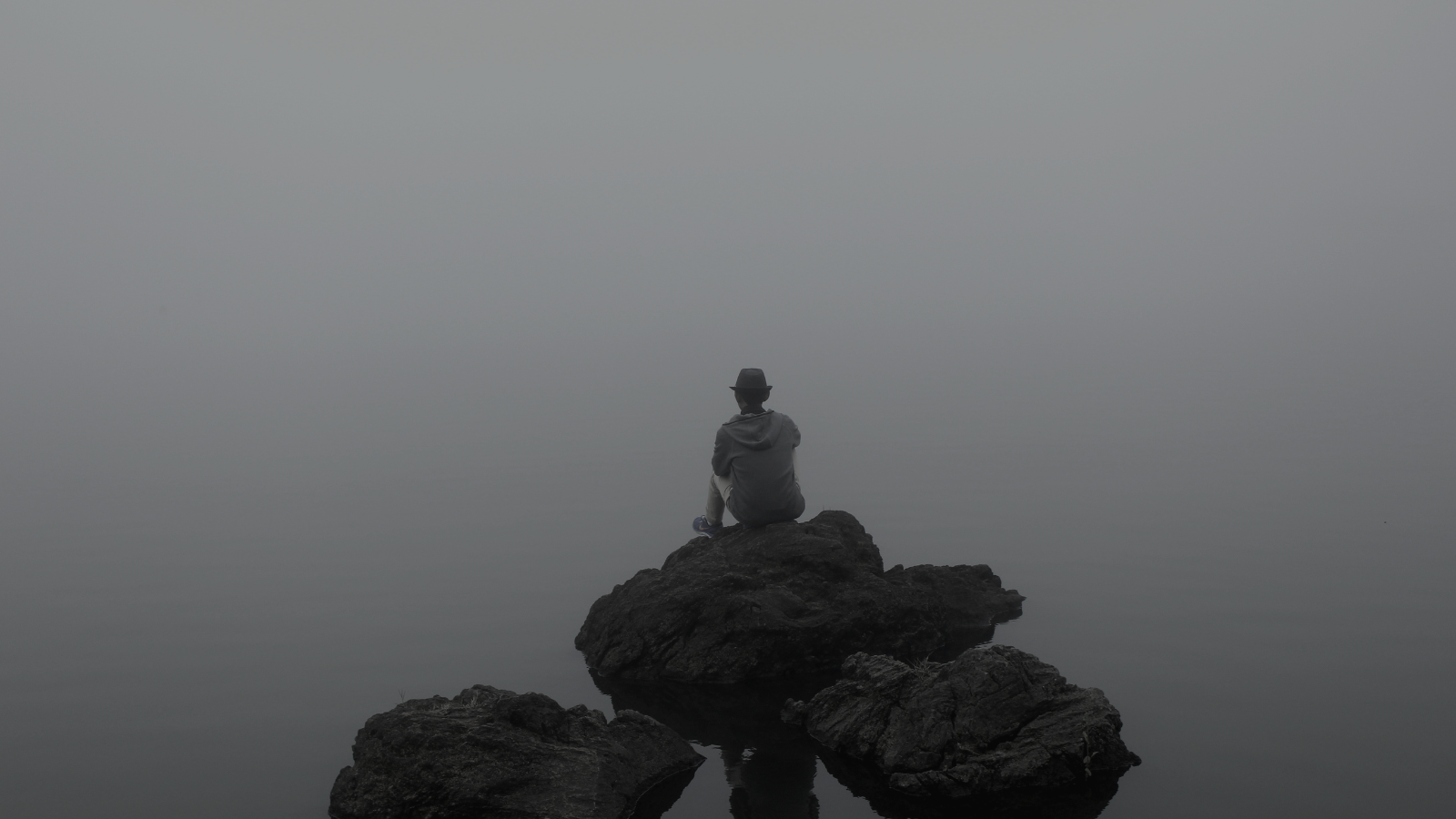By Lindsay Eagar
I don’t know where you live, but where I am, it’s prime walking season. In another month it will be scorching hot and walks will have to be conducted either in the early morning, before the sun’s awake, or in the late evening, when the day’s cooled off. But right now (and again in five months or so when autumn rolls around), you can escape out the front door and enjoy a long walk knowing you will return not drenched in sweat, but filled with that mythical “fresh air” moms are always imploring you to drink in.
It's infinitely easier for me to pop a podcast in my ears and let my walk be a total distraction, let the words enable me to avoid stirring up my thoughts—but I’ve made it a mission of mine to return to the simple joy of an album in my ears instead. Doing so harkens back to a time before podcasts and audiobooks, when all I had was either an iPod shuffle or, reaching further back, a Discman with anti-skip technology and room for exactly one CD. One album. One landscape, one vibe.
If you, like me, want to dip back into the solace of musical accompaniment while you trod the sidewalks this spring, I’ve compiled a list of my favorite albums for walking. I’ve also alluded to what kind of walk they might work best for, so you can choose the music for walks that might work best for your needs.
For a nice, upbeat walk, try Drunken Lullabies by Flogging Molly
Do you remember the Celtic-punk/Irish-rock wave that hit the world in the late 90s and early 2000s? Think the Dropkick Murphys, The Pogues, and, of course, Flogging Molly. Drunken Lullabies, the titular song from this 2002 album, was featured on the soundtrack for Tony Hawk’s Pro Skater 4 video game, and immediately brings to mind that kind of buoyant, reckless (but ultimately pretty harmless) energy of skate parks and high school cafeterias.
If you are uninitiated, Flogging Molly sounds like if you took traditional Celtic instruments—fiddles, banjos, tin flutes—and overlaid them with Green Day-esque guitar tracks. The lead singer’s thick Irish accent might seem gimmicky, but the energy of Drunken Lullabies is absolutely infectious.
Most of the songs on this album follow a similar pattern—the traditional instruments and the vocals take the introduction and the first lines of the verse, and then the drums kick in, and the whole song accelerates into a rhythm that’ll have you marching down your pathway with the pep of an Irish pub singalong. The lyrics evoke folksy Irish themes—fishermen lost at sea, life in a tenement with a boozy dad, Catholicism—and the whole album ends with a surprisingly poignant dirge that echoes its banjo into silence. This album will take your contented mind and push you into straight-up happiness.
Standout songs: Drunken Lullabies, Swagger, Another Bag of Bricks

For unwinding from screens: 22, A Million by Bon Iver
This is the third album by Bon Iver, the band fronted by singer-songwriter Justin Vernon, who had previously been known for his moody, locked-in-a-cabin-with-only-heartbreak-and-a-guitar sound. His signature acoustic guitar riffs and layered vocals are present on 22, A Million, but they’re enhanced by a new electronic component that feels like Bon Iver finally healed from whatever girl he’d been hooked on.
The album is experimental, but not gritty—Vernon uses samples, brass, synthesizers, and Auto-Tune (something this particular writer is not typically a fan of) and yet manages to create something surprisingly organic-sounding. His lyrics are even more vague than usual, but this works well for the gasps of digital-sounding drive—the songs come across as flighty, not heavy, and while the lyrics might be amorphous, his melodies never are.
Vernon sings in a high falsetto, like he doesn’t want to be too loud, like he’s the guy in the corner, singing to himself, and all this album’s weird sounds and tics blur into a gentle chaos that works perfectly for pulling you out of the digital world of your work, your phone, your TV, and into the rest of your life.
Standout songs: 22 (Over SOON), 33 “GOD”, 666+
If you’re running errands: Soviet Kitsch by Regina Spektor
For a walk that’s taking you to the post office, to the bakery, or to handle some other grownup life task, I can think of no better soundtrack than the whimsical creations of Regina Spektor. She always has a raw, little-kid quality to her songwriting, and her 2004 album Soviet Kitsch embodies this spirit without crossing over into grating. Spektor’s always been a storyteller with her music, and though she was classically trained on the piano and learned to play the biggies, she rarely shows off with her compositions, choosing instead to give you tinkly little ditties that sound like a five-year-old on a toy keyboard.
The spirit of Soviet Kitsch can be found in a line from the song Ghost of Corporate Future, when Spektor repeats: “People are just people.” Through songs about resentfully undergoing chemotherapy, sailors bunking on the cruel boat Mary Ann, or surviving the despondency of divorce, Soviet Kitsch always infuses in me a hippie-esque love for my fellow humans and a gratitude for being out and about in the world, which is a necessity if I’m about to wait in line at the bank. People are just people.
Standout songs: Us, Ghost of Corporate Future, Somedays
If it’s a sad walk: His Young Daughter by Daughter
This is technically an EP, only four songs long, released in 2011 from acoustic guitar/folksy band Daughter. Singer Elena Tonra has a delicate voice, and the songs sound like she’s singing right into your ear, but the lyrics pair this quiet power with darker imagery, making the EP thrum with a lushness and an intricacy that is sometimes lacking with indie guitar projects.
The best parts of this EP are the sliding of the fingers on the strings of the guitar, which provide an intimacy and a tactile sense—creating an ambiance, like you’re coming into a room with a newly-built fire in the fireplace after being out in the sopping rain. Daughter never hurries you through your emotions, letting you linger in your melancholy, but the EP’s finale, Switzerland, adds an accordion and swells with hope.
Standout songs: Candles and Switzerland
If it’s an angry walk: Dan in Real Life Soundtrack
Whether or not you’ve seen the 2007 movie is irrelevant—the soundtrack to Dan in Real Life, composed and performed by Norwegian singer-songwriter Sondre Lerche, is best listened to when you’re blowing off steam. The instrumental songs feature guitar and brass, toying with the same musical themes with either intricate acoustic picking or an almost comedically sad trombone. The songs that feature Lerche’s singing have a passivity to them, an absurdity. His easy vocalizing plods along to the lyrics, sounding like an uncle telling you a joke and slipping in an “you’ll be okay, kid” after the punchline.
I put this on when I’m feeling resentful, when I feel unappreciated as a mom, or when I feel overwhelmed. It usually helps me take deep breaths—whether you then forgive your family or hop on the next train out of town is up to you.
Standout tracks: Family Theme Waltz, Dan in Real Life, Hell No
For moving your butt after sitting at work: Body Talk by Robyn
Robyn’s 2010 dancepop album Body Talk has yet to be matched in its category—it’s bubblegum pop, it’s electronica, it’s high-gloss but emotional, and it’s both singable and danceable (and walkable). Robyn has a smooth, accessible quality to her singing, but that never overrides the soul she infuses into each word—you get the sense that every lyric is personal, every measure is meaningful. It’s also an album that’s meticulously edited, but never feels zapped of its quirks.
Every song is a banger; the album sounds more like a greatest hits compilation than a standard album offering. If you’ve been hunched behind a desk all day and you’re ready to hit the pavement and get your blood pumping, crank up this gem.
Standout songs: Dancing On My Own, Call Your Girlfriend, Hang With Me
For a walk to close the day: Infinity by Yann Tiersen
Yes, Yann Tiersen, the guy who made the soundtrack to Amelie—but don’t reduce him to merely a soundtrack composer. In 2014’s Infinity, Tiersen shows his versatility and the spaciousness of his imagination. It’s a dreamy album, filled with interesting transitions and strange noises, but ultimately, the album’s much more grounded than your typical atmospheric art rock.
Tiersen’s Amelie soundtrack showcased his skills with cozy, whimsical instruments and melodies, but with Infinity he looses a multi-instrumental soundscape that heightens emotions, dissolves, ebbs and flows like a tide, in and out. Strange noises pepper the songs but never outshine the music—the bells, the chimes, the bird calls, the tickings, all serve to build a spectacular bubble of sound that will move you, will make you appreciate being alive.
Standout songs: Slippery Stones, Midsummer Evening, Meteorites
Whenever you get the chance to hear your walking music live, make sure you grab a set of EARPEACE concert earplugs. Our hearing protection is like the benefits of walking--a small action you can take to really improve the quality of your life.
Lindsay Eagar is the author of several novels for children and adults, including HOUR OF THE BEES and most recently THE PATRON THIEF OF BREAD. She lives in the mountains of Utah with her husband and their two daughters.





Share:
THE ORIGIN OF FAN GIRL CULTURE
MOTORCYCLE.COM x EARPEACE